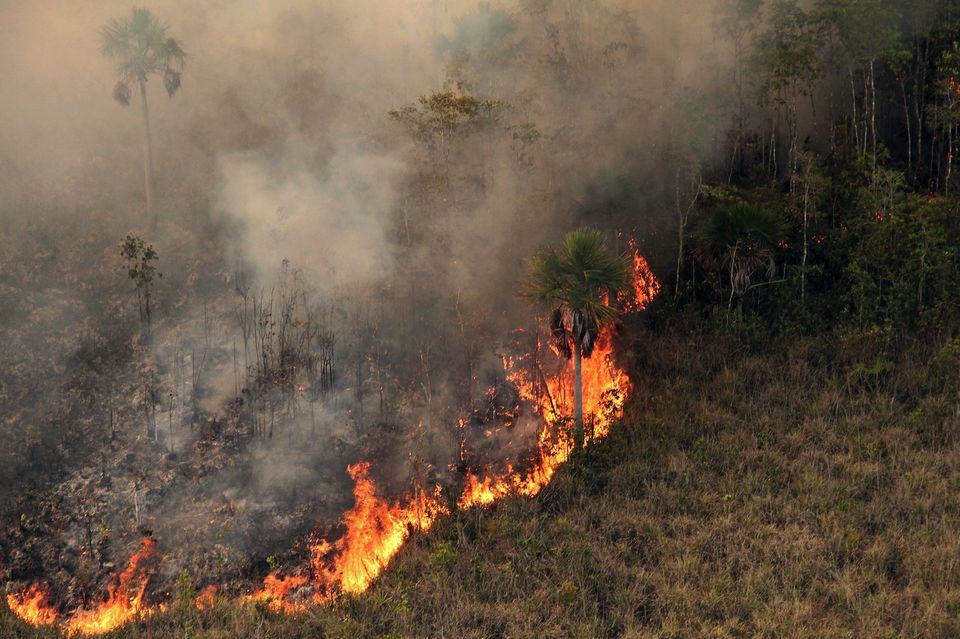This year, in 2019, Ashden launches its first Natural Climate Solutions Award. The award will recognise work that manages and protects the planet’s rainforests by drawing on the skills and experience of indigenous people – while also supporting these communities. Funding for natural climate solutions lags far behind backing for technological ones. We urgently need to raise awareness, trigger investment and push politicians into action.
Rainforests are vital to defending the planet from climate change. But they, and the communities that have lived in harmony with them for thousands of years, are under threat. We are seeking solutions that conserve and restore these precious ecosystems while also supporting and empowering indigenous communities.
The most promising work we have seen in this area reminds us that addressing inequality is a fundamental part of radical climate action. We won’t solve one problem without tackling the other – the transition to a zero-carbon world must be a fair one.
By storing greenhouse gases, natural environments such as forests, mangroves and grasslands are playing a huge role in tackling the climate emergency. Rainforests in the basins of the Amazon and Congo rivers, and in South East Asia, are particularly important because of their massive size and biodiversity. All three are under threat.
The clearance of land for agriculture is probably the biggest driver of deforestation. With global food demand set to double by 2050, production must grow in a way that doesn’t harm a key defence against the climate crisis. Logging and mining, legal and illegal, also pose a huge danger.

Indigenous people bring expert knowledge
There is growing evidence that one of the best ways to conserve and manage forests is to use them sustainably – as indigenous people have done for generations. Past approaches to conservation have sought to block all human activity in a given area, pushing people off the land. But new research from the University of British Columbia found indigenous-managed lands had more biodiversity than ‘protected’ equivalents. Research leader Richard Schuster explained: “collaborating with indigenous land stewards will likely be essential in ensuring that species survive and thrive”. The World Resources Institute has found that sustainably managed forests store more carbon than non-managed forests owned by businesses or the state.
These communities currently manage 900 million hectares around the world, and have sophisticated knowledge of agriculture, the biosphere and land management – particularly how to control catastrophic wildfires. In the Brazilian savannah, dry season fires dropped by 57% when the fire service collaborated with indigenous tribes.
Indigenous people are on the front-line of the climate crisis, particularly vulnerable to extreme weather or climate changes that threaten food production. Their lack of financial wealth and political power increases the danger they face. If we fail to draw on their skills and knowledge – or, even worse, allow their way of life to be destroyed – the cost will be borne by all of us.
Promising solutions
What are our judges looking for? Solutions could include those helping indigenous people make use of techniques such as agroforestry, where trees and crops share the same land. The judges are also looking for finance initiatives that support community forest enterprises, and the creation of new, sustainable economic opportunities for indigenous people.
Innovation might also tackle the crucial issue of land rights. It is often harder for indigenous people to claim ownership of land than it is for governments and corporations. Securing land rights is a foundation for the community’s wellbeing, and the conservation benefits their presence can bring – boosting biodiversity and carbon storage, and protecting land from deforestation. Partnerships involving indigenous people, governments and forestry commissions or regional authorities have huge potential.
Entries for the award close on 11 December. The prize will raise the profile of the winner and other finalists, connecting them with funders and the media and unlocking new opportunities to scale up or develop. But it will also strengthen links between the conservation, indigenous rights and climate change sectors.
We already know there are outstanding initiatives with benefits in all three of these areas. But if experts in each sector don’t talk to each other, the full value of the work won’t be understood and shared. Crucial knowledge will be lost, and chances to improve lives and protect our planet will be wasted.
Natural climate solutions have been overlooked for too long – and with the climate crisis growing every day, we need to take action with every tool we have. Inclusion of, and protection for, indigenous people is essential.

